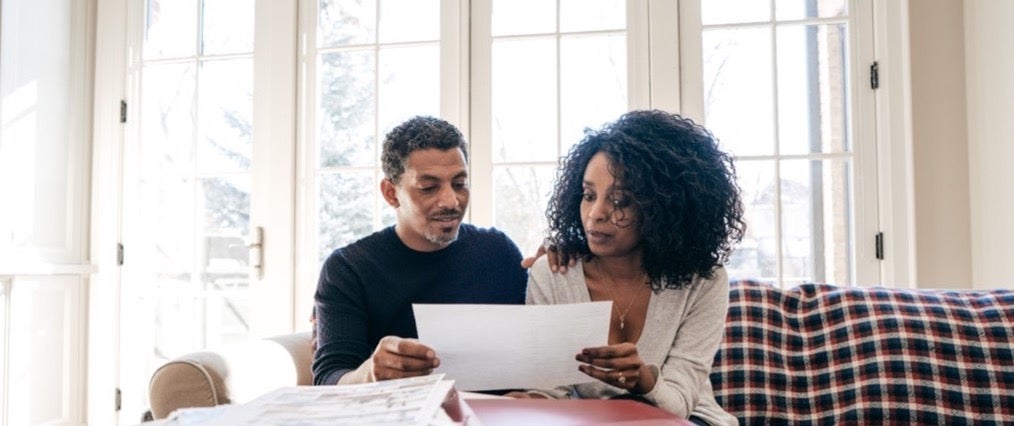The price of electricity has consistently increased for the last several years, and it’s projected to continue rising in the future. This summer, the U.S. Energy Information Administration expects consumers will spend 5.9% more on electricity than they did in the summer of 2014.
If you don’t like the sound of that, maybe it’s time to consider an alternative. Residential solar energy has grown a lot recently, and in addition to the environmental motivations for choosing that resource, using solar energy to power your home could be a big money saver. At least, that’s how proponents of the industry pitch it.
Whether or not you can power your home with solar energy depends on a lot of things, like the ability to connect solar units to the power grid (not so easy in many states), the type of property you own and, obviously, its ability to receive sunlight. The ultimate money-saver would be to buy a solar energy system and be able to produce enough energy to power your home — once you’ve absorbed the cost of the system, it’s a practically free utility (though you still have to pay a few bucks a month for the electricity delivery).
“It’s basically like switching from renting utilities to buying a utility plant,” said Alex Valdez, CEO of EcoMark Solar in Colorado. If you can’t afford to buy a system (they can cost tens of thousands of dollars, though prices vary widely by how much energy you need), you have a few options.
You Can Rent a System
When solar energy first emerged in the residential market, homeowners weren’t eager to invest thousands of dollars in an energy system they weren’t familiar with. As a result, the market started off mostly with power purchase agreements (PPAs), in which an investment bank would install a system on a home and charge the homeowners for usage, on an escalating scale as time goes on.
“If you pay 10 cents per kilowatt hour, next year it might be 11 cents per kilowatt hour; that reduces the client’s savings,” said Jonathan Caizley, chief technology officer for Sunistics in California. At the end of the agreement term, usually 15 or 20 years, the homeowner doesn’t own the system, but they can buy it.
PPAs aren’t available everywhere, but a solar lease is similar in that the consumers don’t own the systems. Terms are usually shorter than with PPAs and come with fixed payments, Caizley said. Homeowners generally still save money, compared to what they’d pay a traditional utility company, because the system owner can receive tax credits for the system, and those savings are passed on to the consumer.
This option makes sense if you have the opportunity to try out alternative energy but don’t want to pay a high out-of-pocket cost. Still, you have to have good credit to get a PPA or solar lease. Caizley said applicants must often have a credit score in the 700s, on a 300 to 850 credit score scale.
You Can Buy a System
Even if you don’t have the cash, you can buy a solar energy system for your house (assuming your house meets the criteria). Loans are becoming much more popular.
“Solar loans for a first time [in 2015] are going to be more popular than PPAs and solar leases,” Caizley said. He’s seen interest increase as consumers become more informed about solar energy as a residential resource. “They see the value of consuming the tax credit on their own. Oftentimes what it comes down to is do they want to save money on their electricity bill right off the bat or do they want to invest in the system and have a project with a high return on investment.”
For those looking for the higher return on investment, financing the system could be a great option (if you don’t have the cash, that is).
Right now, the most common option is to finance with the company that sells you and installs the system, though some big banks are moving into the solar financing space, Valdez said.
“The specific companies that are focused on solar financing have more of an idea of how to underwrite it,” Valdez said. That financing typically includes the whole thing — the system, city permits and installation. That’s not to say a home equity loan or a personal loan wouldn’t work, as well.
Valdez said consumers generally need a credit score of 660 or higher (on a 300 to 850 credit score scale) to qualify for solar financing. A few years ago, “you couldn’t touch anyone below 700,” he said.
As for cost, Valdez said the best offer they have is a 2.9% interest rate on a 12-year term, with the first 18 months interest-free. The shorter the loan term, the better the savings, though he said solar loans are usually 12- or 20-year terms. Caizley said their best rate is around 3.5%, but he’s seen solar loans with 6% or 7% rates. There are many factors in the pricing, not least of which is the consumer’s credit standing.
Making such a significant financial (and physical) commitment takes several months. First, you have to figure out if you can even get solar energy to power your home, then you have to get the system set up, which can take as little as a few months to as long as a year. If you’re considering an investment like this, you’ll need to know if you have a shot a qualifying for financing. To see where you stand, you can get two of your credit scores for free on Credit.com.
More Money-Saving Reads:
Image: iStock
You Might Also Like
March 8, 2021
Personal Loans
April 8, 2020
Personal Loans






